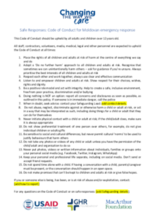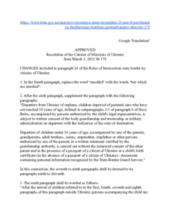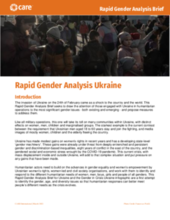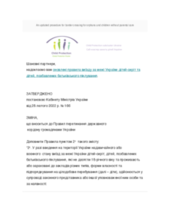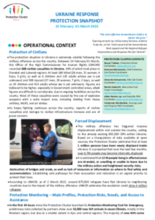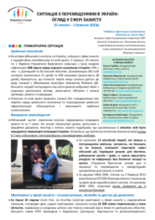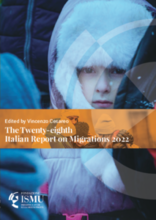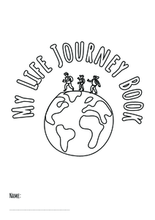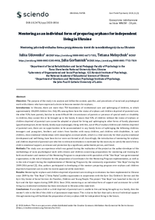This section includes resources, news and other key documents related to children's care in the context of the current humanitarian crisis affecting Ukraine and surrounding countries. This section is updated daily.
News
Featured Resources
Related Tools and Guidance
Country Care Snapshot
Events
Other Resources
Displaying 141 - 150 of 194
This code of conduct is to be used during the Moldovan emergency response to the Ukrainian crisis. It should be upheld by all adults and children over 12 years old.
The Cabinet of Ministers of Ukraine introduced a modification of item 24 of "Rules of crossing of the state border by citizens of Ukraine". This is an unofficial English Google Translation of the original document published in Ukrainian which is included on Page 2 of this document.
This Rapid Gender Analysis Brief seeks to draw the attention of those engaged with Ukraine in humanitarian operations to the most significant gender issues both existing and emerging and propose measures to address them.
The Government of Ukraine released this updated procedure for border crossing for orphans and children without parental care.
The Protection Cluster coordinates the protection response and advocates for the improvement of policies and legislation affecting conflict-affected people. It also engages in capacity building and provides guidance on mainstreaming protection into all humanitarian response activities. This is the protection snapshot for Ukraine for the period February 25 - March 1, 2022, compiled by Protection Cluster Ukraine.
Кластер захисту координує заходи захисту та виступає за вдосконалення політики та законодавства, що стосуються людей, які постраждали від конфлікту. Він також займається розбудовою потенціалу та надає рекомендації щодо включення захисту у всі заходи гуманітарного реагування. Це знімок захисту для України за період з 25 лютого по 1 березня 2022 року, складений Protection Cluster Ukraine.
The Protection Cluster coordinates the protection response and advocates for the improvement of policies and legislation affecting conflict-affected people. It also engages in capacity building and provides guidance on mainstreaming protection into all humanitarian response activities. This is the protection snapshot for Ukraine for the period February 25 - March 1, 2022, compiled by Protection Cluster Ukraine.
In this essay, after providing some data regarding Ukrainian families and minors who fled their country after the Russian invasion and moved to Italy, the authors will focus on the extraordinary effort made to improve reception programs, on the peculiar condition of minors who reached our country accompanied by adults who were not their parents, and finally on the experience of placing these fleeing families into Italian households.
Since the start of war in Ukraine, more than 4 million people have fled, half of whom are children. As of today there is the Mylifejourneybook for these children: an activity book in which children can write their experiences of the journey, but also their memories of Ukraine and their hopes for the future. The book can be downloaded free of charge for everyone at www.lifebookforyouth.com/mylifejourneybook
The purpose of the study is to analyze and define the content, specifics, and procedures of social and psychological work with citizens who have expressed a desire to become mentors for orphans.

